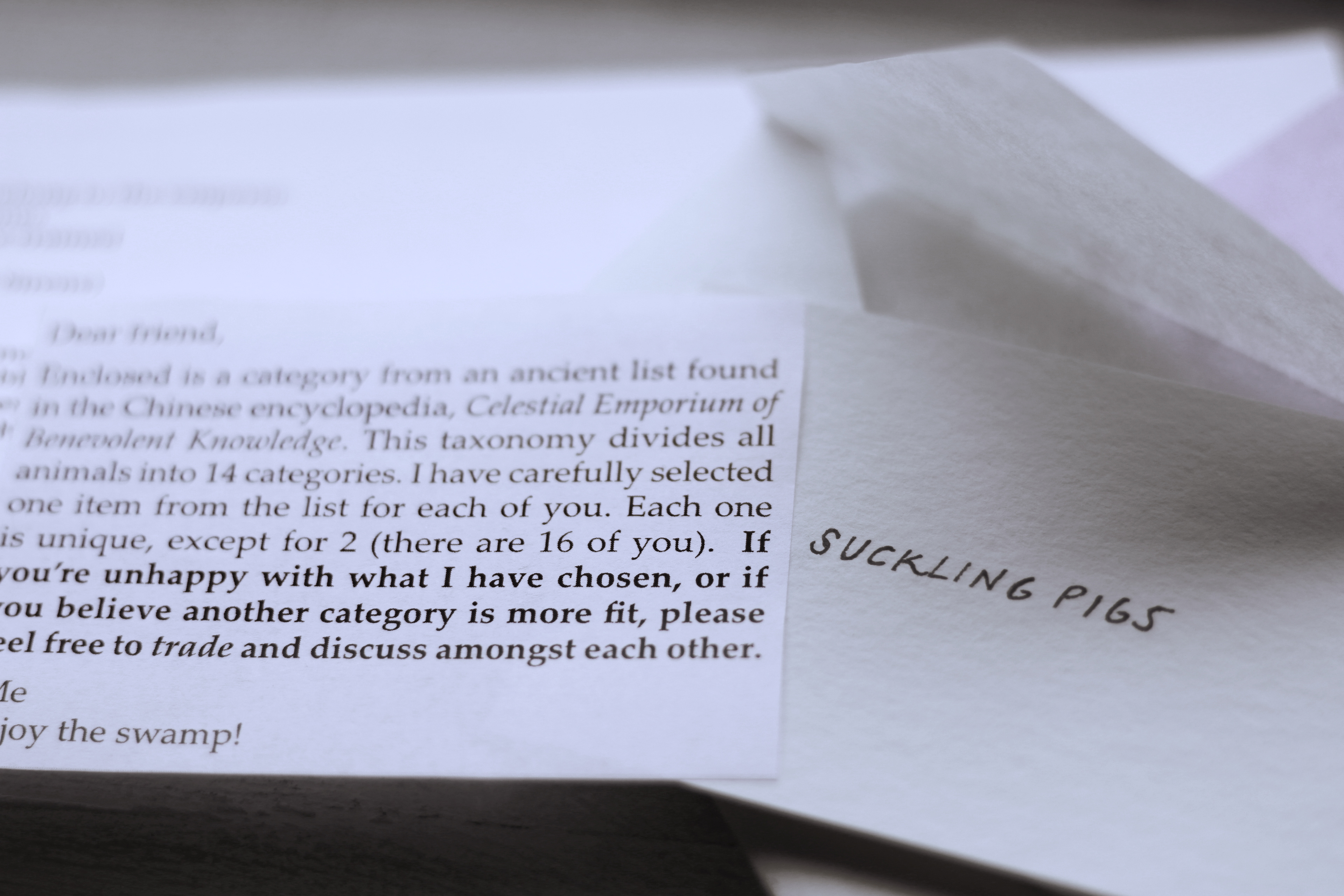Jorge Luis Borges wrote an essay called “The Analytical Language of John Wilkins,” in which he criticizes John Wilkins concept of a “universal language,” where Wilkins proposes a system of more or less objective language holding exact meaning in the word itself. In an effort to combat this notion, Borges describes a translated Chinese list that seeks to describe all animals. It is later revealed that this is entirely fictional. Borges is posting that regardless of the attempted universality, language is, in a way, an arbitrary manner of socially organizing the world.
This list is as follows:



The list is ambiguous and nonsensical. I meticulously planned and matched what information I could intuitively extract from the categories, to what I could extract from the participants' personalities, despite only knowing them casually. The reason why I pair each individual with their category could be analyzed through my own thoughts and projections, but is likely not based in rationality. One pair ended up trading.
The environment, called the “swamp,” acted as a space with similar parallels in mind, a place of ambiguity, fiction, and ritual for the participants. The “swamp” was nothing more than a tinted bath, and a projected sky sat adjacent to the “real” sky through the window pane. The categories and a description of the event were included in individual envelopes, situated at the window sill. At the beginning of the performance, I scaled the wall to the “real” sky to retrieve packages.
I was able to learn how I perceive the Other vs. how they perceive themselves. The space was generous. The participants noted how they began to consider how the Other considered them in their reflections of the experience.